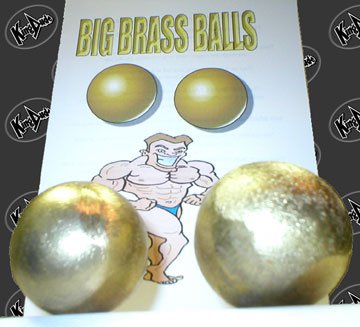Jeb-NY
Recycles dryer sheets
I probably will need a complete rebalance by the end of the year but I have to start sometime. Been RE for a few months now, but living on salary continuation. Not happy with my Roth account and have been thinking about getting out of the current funds and going with a few ETFs.
Currently Roth has about $45K plus another 5K coming in for 2006.
Right now $8K is in a Money Market Fund waiting for me to decide what to do (been there for a year, can't rush this). The rest in a tech sector fund that hasn't done much since the bubble broke.
My overall allocations across taxable (~25%) and deferred (~75%) is very roughly:
40% - Large Cap
20% - International (including about 5% in a hot S American fund)
20% - Bonds/and such (mostly from balanced Mutual Funds)
05% - Cash Money Markets and CDs
08% - Small Cap
04% - Tech and Health Care
03% - Mid Cap
Seems like I should add some more small and mid cap but open to suggestions. I thought this was going to be easy till I looked at how many ETFs there was to pick from. Then throw in Value, Blended or Growth. The taxable funds and the Roth money is mostly in TDWaterhouse.
Any suggestions?
By the end of the year I will need to rebalance the whole think as I roll most of the 75% deferred money into new accounts when I go off salary continuation and fly on my own. Leaning towards Vanguard, (maybe Fidelity since we have some money there already) but haven't decided what yet.
Longer term help is also welcome but I will probably ask again towards Fall unless I decide to rebalance sooner. I do have about $40K of company stock to move soon, it isn't doing much either.
Jeb
Currently Roth has about $45K plus another 5K coming in for 2006.
Right now $8K is in a Money Market Fund waiting for me to decide what to do (been there for a year, can't rush this). The rest in a tech sector fund that hasn't done much since the bubble broke.
My overall allocations across taxable (~25%) and deferred (~75%) is very roughly:
40% - Large Cap
20% - International (including about 5% in a hot S American fund)
20% - Bonds/and such (mostly from balanced Mutual Funds)
05% - Cash Money Markets and CDs
08% - Small Cap
04% - Tech and Health Care
03% - Mid Cap
Seems like I should add some more small and mid cap but open to suggestions. I thought this was going to be easy till I looked at how many ETFs there was to pick from. Then throw in Value, Blended or Growth. The taxable funds and the Roth money is mostly in TDWaterhouse.
Any suggestions?
By the end of the year I will need to rebalance the whole think as I roll most of the 75% deferred money into new accounts when I go off salary continuation and fly on my own. Leaning towards Vanguard, (maybe Fidelity since we have some money there already) but haven't decided what yet.
Longer term help is also welcome but I will probably ask again towards Fall unless I decide to rebalance sooner. I do have about $40K of company stock to move soon, it isn't doing much either.
Jeb

